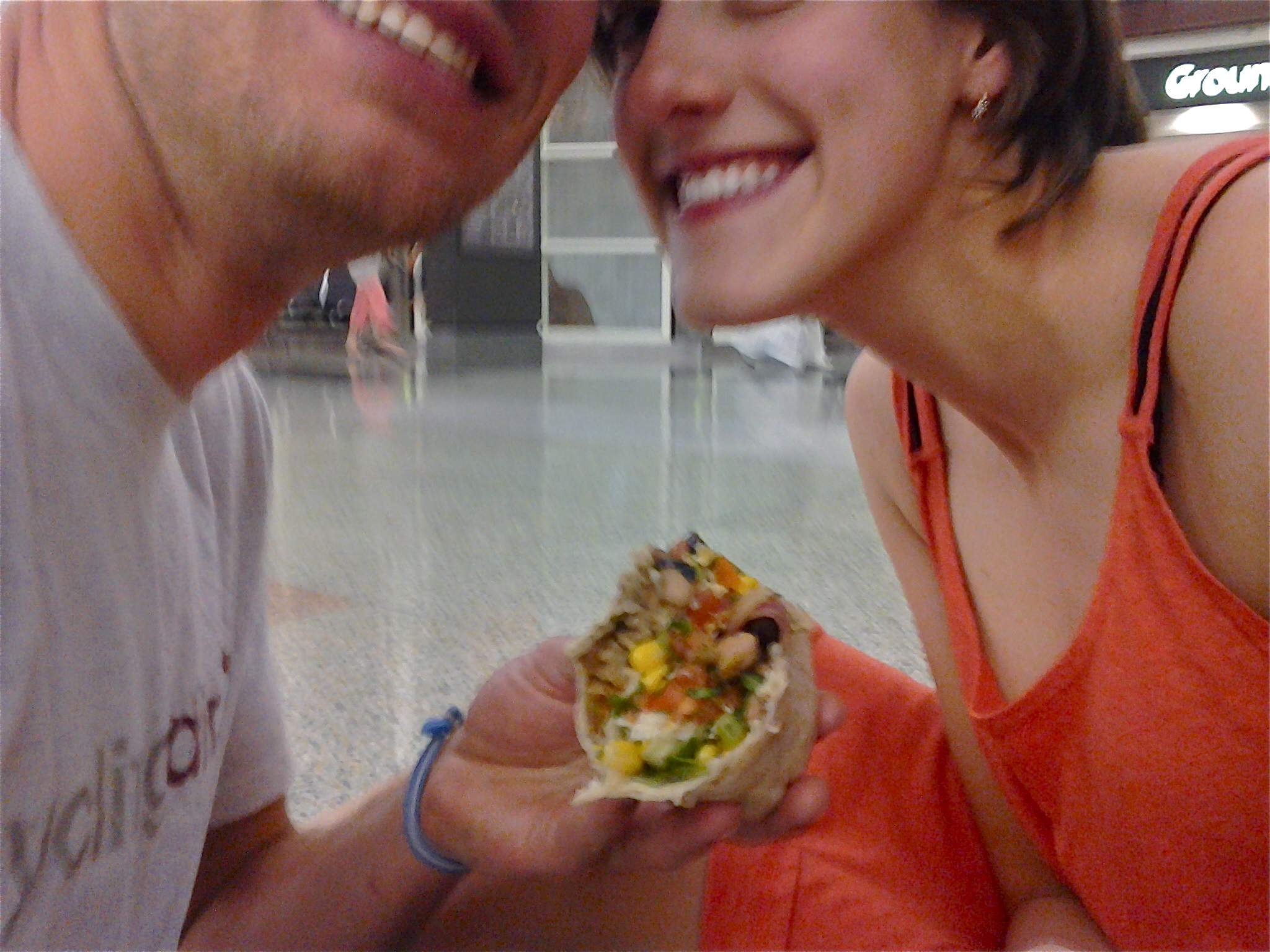Reflections on Six Months in Argentina
8 Aug 2012
I touched down in Houston ten days ago, beginning the much anticipated process of culture shock. Restaurants close really early here. It seems kind of rude.
I chatted with some Texans while waiting for my connecting flight in Panama City. They worked for a company that sells hot water heaters and were on their way back from a business trip to Venezuela. They had absolutely nothing good to say about Latin America. “It’s really dirty, there’s so much trash,” said one. “Everything’s so expensive. A subway sandwich runs you 30 dollars. It’s ’cause they’re socialists,” said the other. “Communists, not socialists,” corrected the first.
I considered making a run for it. Would the 400 argentine pesos I had in my wallet buy me a treehouse in the Panamanian rainforest? What about a pet monkey? Or you know what, forget the monkey, justdon’tmakemegobackjesuspleeeease. I took a deep breath, forced myself to tune out the Texans and focused on burritos, pad thai and spicy mustard.
The week before this moment I had been sitting in a park at 10 pm drinking mate with a friend. He asked me what I missed about the United States. Most of the things I came up with involved food. And by most, I mean all, excepting, of course, my wonderful boyfriend Macky. How, my friend wondered aloud, are you not redonda? Then he asked me what I was going to miss about Argentina. I said I’d have to wait and see.
Standing in the airport line I started to think the answer to that question might be EVERYTHING. (Except maybe milanesas.) But thankfully most Americans aren’t like those Texans. Heck, probably most Texans aren’t even that stupid but I don’t know enough Texans to say for sure. Turns out most of us are pretty cool. Our restaurants may close at 8:30 pm (!!!) but the water is free so it’s not an awful trade off. And we speak English which is kind of, like, an awesome language. You cannot truly appreciate the power of language until you go seven months without making a play on words or successfully telling a joke. The first time my Argentine friends heard me speak English they looked at me in shock and said “You talk so fast. We thought you were just kind of mentally slow.” Thanks, guys. As they drove me to the airport they teased “Are you excited to be able to talk normally again?” At the time I found this annoying but after ten days in the US of A, I’ve decided that “talking normally” is the freakin’ bomb.
But linguistic handicaps aside, I will miss Cordoba. I will miss the people–the drives to nowhere, the surprisingly profound conversations in a language not my own, the drinking coffee at 2am. I will miss the energy of the city, the bustling, colorful, claustrophobic streets packed with noise and life. I will miss the market and the pick-up trucks stacked sky high with fruit and vegetables and the skinned pigs hanging by their noses. I will miss the sound of the horses pulling carts full of cardboard on cobblestone streets at dusk—clackity clackity clackity clackity.
I could never live in a city like Cordoba, not permanently. I love silence too much. Now, after 10 days of camping and bumming through Colorado, Wyoming, Utah and California I wonder how I survived so long without seeing stars. I showed my Argentine friends my house on Google Earth and they said, “wow, you’re a campesina (country-person)” and regardless of whether or not that was intended to be an insult, it’s true. And yet sometimes, like right now, sitting in Boulder, Colorado listening to nothing more than the puttering of the neighbor’s sprinkler system, I miss the clackity-clackity-ing and the deep thumping of the cars with speakers roped to the roof.
Traveling often results in categorizing and sorting. We note the differences and marvel the similarities. Cultures seem like separate entities, to be sampled, compared and analyzed. In Argentina, they do this…In Europe, they wear that… There is value in this–it doesn’t have to be demeaning or condescending. Cultural differences are fascinating and very, very real. But spending a significant amount of time in another culture complicates things–the process becomes less analysis and more synthesis. You adapt to certain things and you forget that they are “different.” When another culture integrates with your daily life experience you stop thinking in terms of “different” and “same.” It’s just your life. Then you come home and “different” starts blaring out at you like billboards on the interstate. They call this culture shock but to me it feels a lot more like nostalgia.
In many ways, my experience in Argentina was incredibly difficult. In many ways, it was frustrating and exhausting. In other ways, it was formative, fun and exhilarating. It all ways, it was beautiful. Or as they say down south, linda. Te extrañaré Cordoba.







Very nice. I will look forward to more descriptions of the state of your reentry mental map whenever you have the opportunity to share.
We look forward to WHATever you care to share. Awesome :)